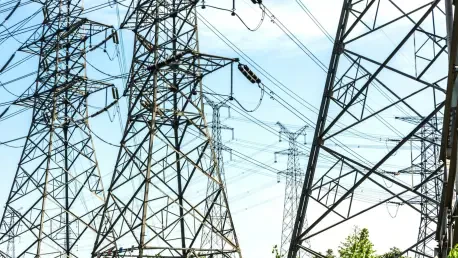A new prediction points to the Midcontinent Independent System Operator (MISO) expecting an energy surplus as industrial demand gains momentum. This development offers crucial insights into the evolving dynamics of energy supply in a region covering multiple states, impacting strategic decisions in the energy sector.
Exploring the Improving Energy Landscape
In recent years, MISO has navigated challenges in managing electricity demand, impeded by infrastructural constraints and regulatory hurdles. Previous shortages raised alarms, prompting enhanced capacity management strategies. The latest survey conducted alongside the Organization of MISO States (OMS) uncovers a promising energy surplus forecast for the planning year commencing June 2026, altering the narrative from scarcity to potential abundance. Understanding this shift is vital for market participants and policymakers aiming to secure energy reliability in the years ahead.
Analyzing Key Market Trends and Developments
Collaborative Efforts Fueling Optimism
An integral factor behind the anticipated surplus is the strengthened collaboration among MISO, state regulators, and industry stakeholders. This partnership has allowed for more accurate forecasting models and has been pivotal in addressing past capacity issues. However, caution remains as supply chain disruptions and regulatory challenges continue to pose threats, requiring vigilance and adaptability from stakeholders.
Growth from Rising Industrial Demand
Electricity demand across MISO operates at a 2.2% annual growth rate over a five-year span, notably driven by data center expansion and reshoring industries. This growth rate surpasses previous predictions and necessitates strategic development and infrastructure planning to meet the increased demand reliably. Industrial growth brings both opportunities and responsibilities, as MISO must ensure the seamless integration of new energy resources into an agile grid system.
Regional Dynamics and Resource Adequacy
Differences in energy demand and supply across MISO’s jurisdiction are influenced by regional factors such as innovation, market conditions, and consumer behaviors. Tailored strategies are essential for resource adequacy, demanding attention to local specifics in energy planning and addressing misconceptions surrounding energy distribution. Transparent dialogue among stakeholders is critical to navigating these complexities effectively.
Future Outlook: Trends and Innovations Shaping MISO’s Energy Strategy
Emerging technologies and shifting regulatory landscapes hold potential to transform MISO’s operations. Advances in transmission architecture and streamlined permitting processes could foster a more flexible and responsive energy infrastructure. Predictive analytics, coupled with adaptive strategies, may enhance resilience amidst evolving industry needs, setting the stage for sustained energy adequacy.
Strategic Recommendations and Planning Measures
Stakeholders within MISO must remain attuned to the shifting energy landscape. Embracing adaptability in energy strategies, informed planning, and consistent communication can help manage supply-demand variability efficiently. Collaborative efforts that address immediate requirements and long-term vision are paramount for maintaining a robust and dependable electric grid capable of supporting growing industrial demands.
Implications and Strategic Insights for MISO’s Future
The projected surplus signifies successful strides in MISO’s capacity management efforts, a promising shift from prior challenges. Yet, meeting future demand in a rapidly industrializing region necessitates continued strategic focus, technological advancement, and cooperative partnerships. The evolution of MISO’s energy landscape calls for proactive engagement and progressive strategies, ensuring a resilient and reliable grid equipped to address the multifaceted demands of the region.









